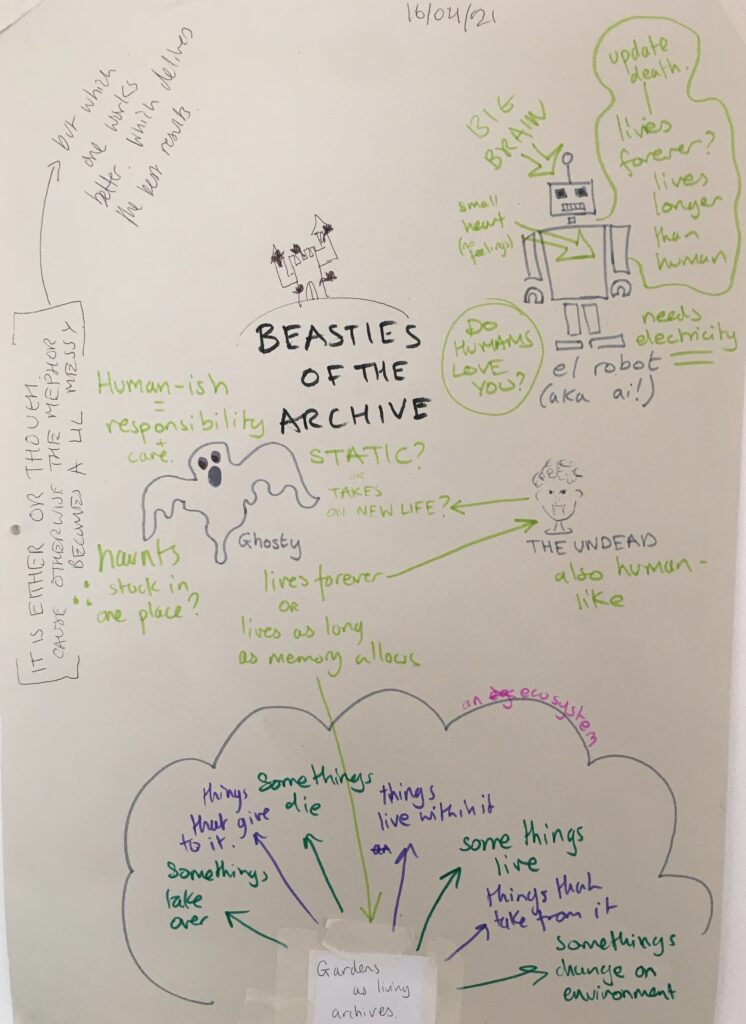I did a mind map/a brain dump around all the supernatural bullshit that bounces around in my head and I finally used a post-it note that some how has survived since February.
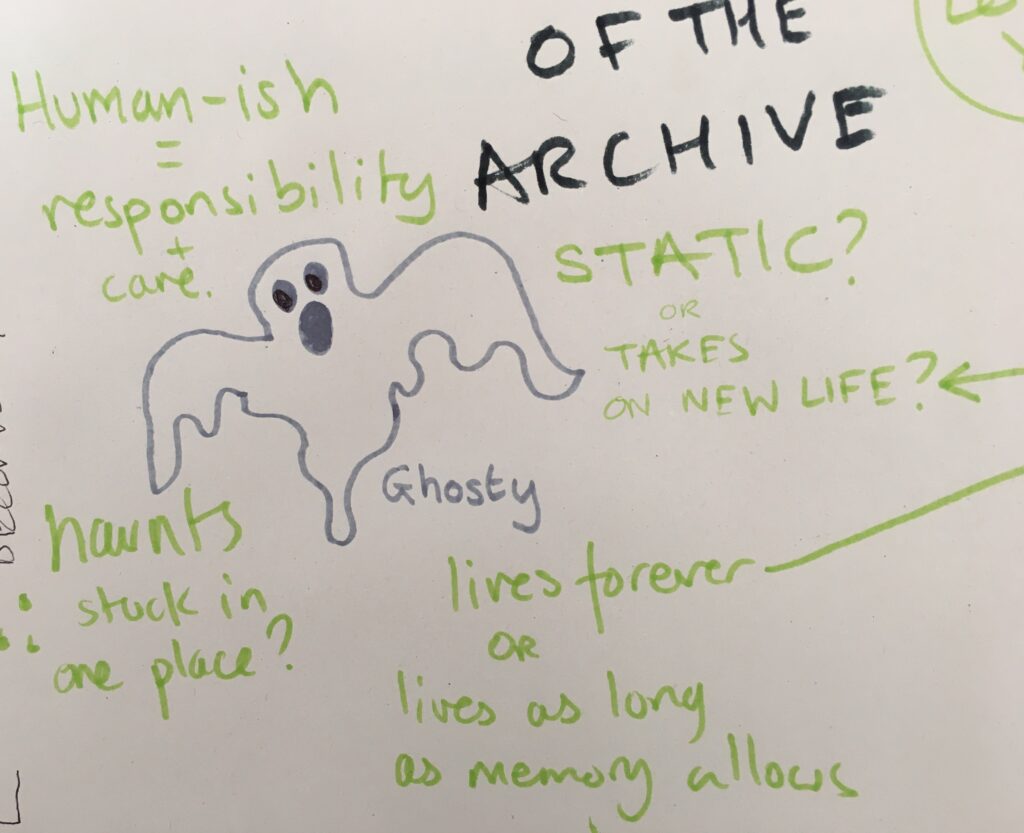
The Ghost
The idea of archives being haunted I have talked about a lot. I do find it a rather beautiful and romantic idea but some people do not believe in ghosts or went to art school so they have a lower tolerance for bullshit. Let’s leave the bullshit argue for now and just enjoy the idea of ghosts of Seaton Delaval Hall floating around the archive telling their stories. The root the stories within a human and therefore more relatable setting. The story has a face and a personality so there is more room for the reuser to create a bond with the person.
However, ghosts are by their mythology rather static beings. Ghosts exist because they have unfinished business in this world. They live a rather selfish existence which is not too ideal for the space that I want to create where ghost and human collaborate together.
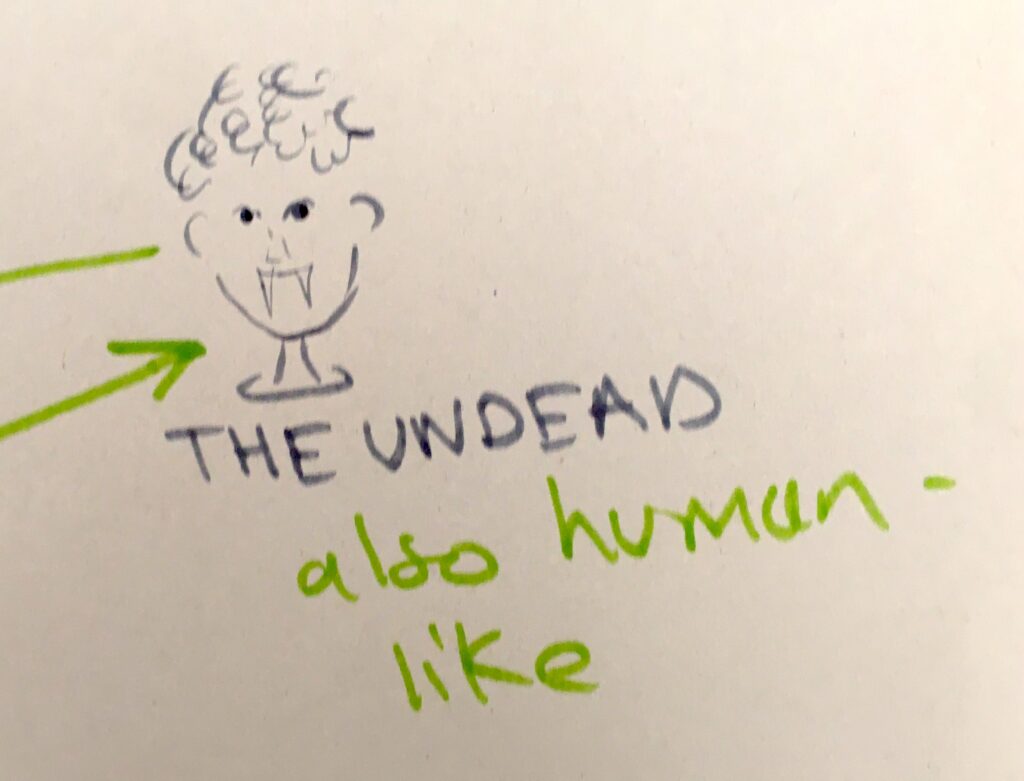
The Undead
Unlike the ghost the undead are able to stay in this world forever, adapting with society, taking on new trends etc. They are also human like but unlike ghost they have less of an agenda so are more likely to be open to ideas.
However humans do not generally like things that live forever, mostly because we are very jealous, so the undead are often painted as pretty gross. For example, rotting zombies or blood thirsty vampire, generally both are not very cool when it comes to fitting in with society.
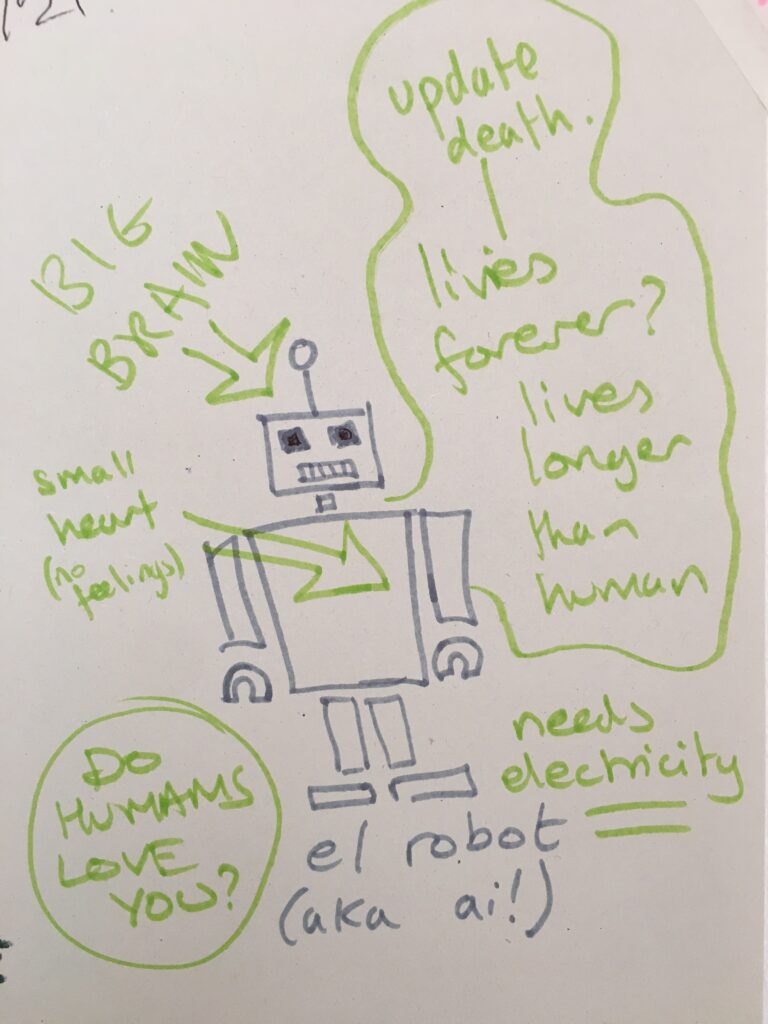
The Robot
Here is another potentially immortal being, the robot! However this one might potentially die faster than all of us due to rampant capitalism, built in obsolescence and many many updates. But if it does survive it has a bigger brain than all of the beasties. However, it does not have a heart and unlike the above beasties this one is less of a metaphor and more of a physical system many of which already exists. My only addition is that we give this robot a name, which is not a particular new idea just ask Alexa. By the way here is probably the biggest problem – I do not really like Alexa, I think she is creepy.
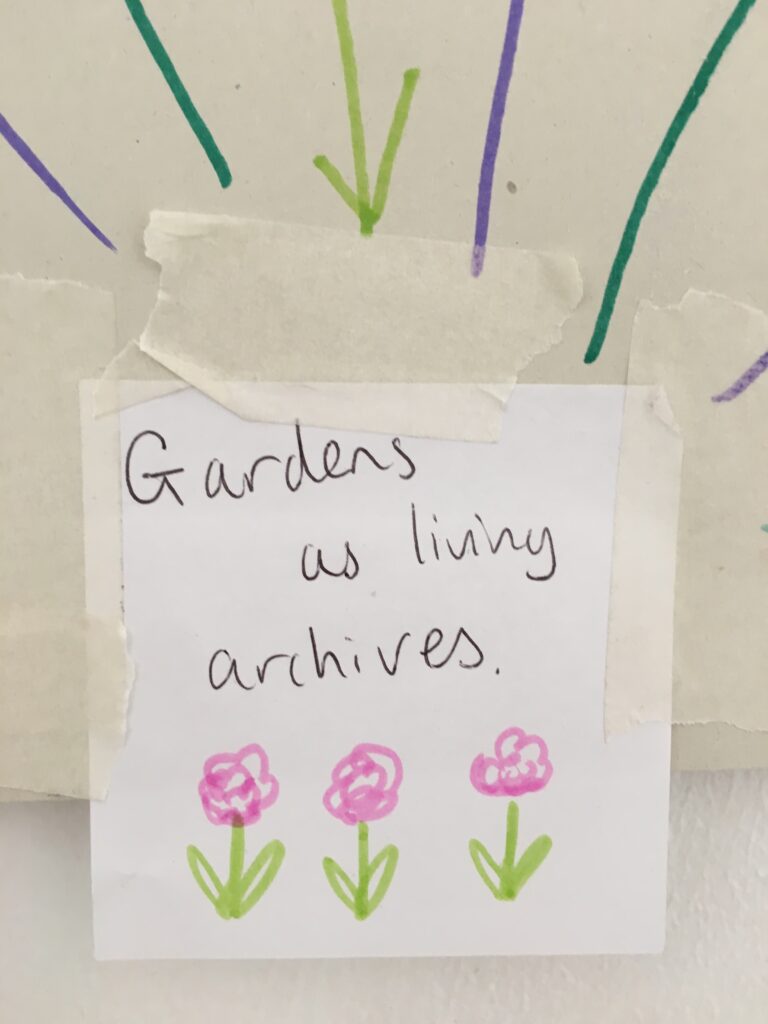
The Garden
From fauna to flora here comes the archive as a garden. Originally this post-it was created because I was thinking about how I have memories attached to plants but it has now morphed into this… Archives can be viewed as an eco system just like a garden. The plants are the documents that live within the garden: some die, some live, some completely take over and some change with the seasons. The insects are the users of the archive: some users are bees they take and add to the archive, some are snails and just take take take, and some are flies who deal with the messy that is created. The whole thing becomes an eco system that needs everyone to help in order for it to keep existing. Take one thing out and it all falls apart.
Now I perfectly aware that I cannot use all these metaphors at once because then they do not work, but it is interesting to think about which metaphor can best encourage the mindset that I wish for the users of the archive to have. That mindset being one of care for those who donated parts of their lives to this public space. Are people more likely to care for ghosts, zombies, robots or plants? Or maybe I need to create my own supernatural archival being?
HERE LIES A POTENTIAL EXPERIMENT
